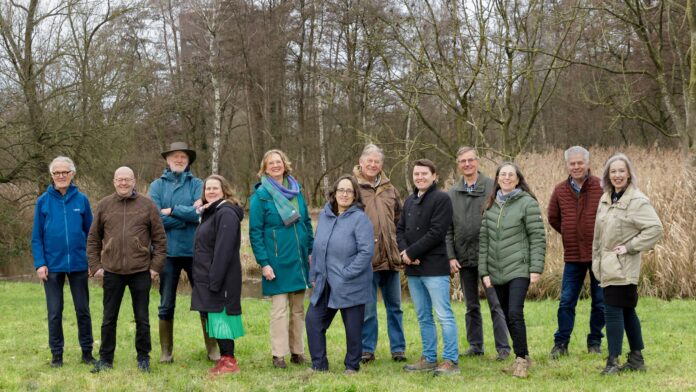Mari de Bijl is a newcomer to Water Natuurlijk, the party that won the water authority elections recently. This party now has the initiative to form coalitions with other parties. Newcomers BBB and Partij voor de Dieren managed to gain four and three seats respectively. Existing parties VVD and CDA have four and two.
As a former forester employed by Brabants Landschap, Mari has long been aware of the importance of water levels for the wellbeing of trees and other plants. He also realised that Brabants Landschap do not own the brooks feeding De Dommel, de water authority does. So a logical step for him was to join Water Natuurlijk to have a say in what water goes where.
Trees need the water
He sees the decline in trees such as the Norway spruce, which, weakened by drought, falls victim to the spruce bark beetle. Douglas fir and larch likewise suffer from drought. Trees such as these are also important for the timber industry. If some ten per cent of the wood needed can be forested locally it does not have to be imported. Broad-leaved trees such as oak and beech also need more water than they are getting at present. All these trees charaterise the landscape in Brabant.
Farmers need the water
Apart from the twenty-six seats allocated to political parties, there are four unelected, secure seats – two for farmers organisations and two for nature organisations. This highlights the sometimes conflicting interests of those on whose behalf Waterschap De Dommel takes decisions. Farmers want the water to pass through as quickly as possible, so that heavy machines do not get stuck in the fields or leave deep tracks. On the other hand, when their fields are too dry, farmers rely on the scarce ground water they pump up.
Moving forward
With altered conditions in a changing climate, Mari de Bijl outlines what he would like to help bring about. To avoid serious drought like we had last summer, water that falls now needs to be retained. Special areas can hold the water and allow it to seep into the ground to replete the ground water levels. “Brooks need to become less tidy”, he says. “Leave fallen trees in the water. They are home to insects and slow down the flow”. He also hopes farmers take the water supply possibilities into consideration when they decide where to plant what. Corn does not like wet feet, so should be planted on higher ground, for example.
Quality as well as quantity
Finally, there is another overarching concern: the quality of the water. European guidelines say that by 2027 all water should be clean enough to be turned into drinking water. Currently, a meagre two per cent of the water in our region meets that standard. “If that”, says Mari.

Written by: Greta











